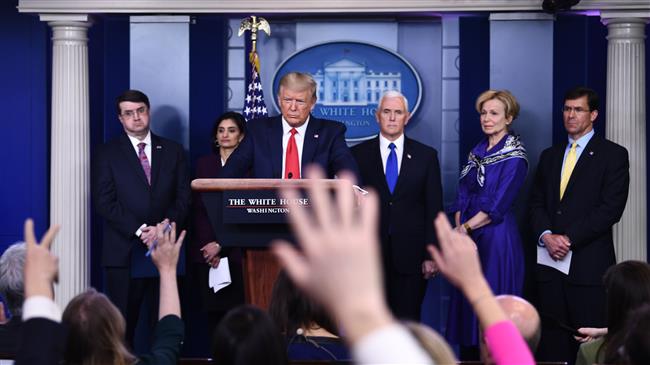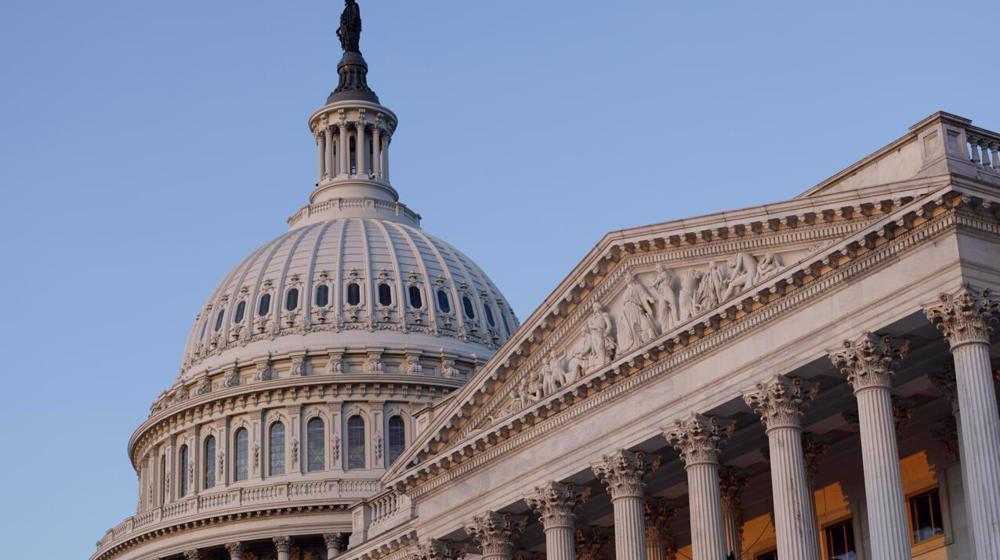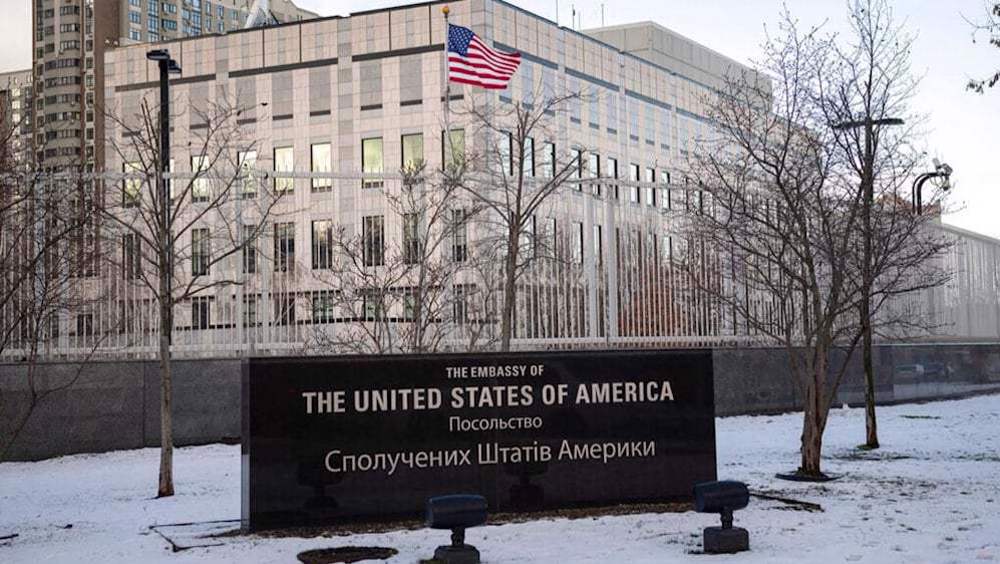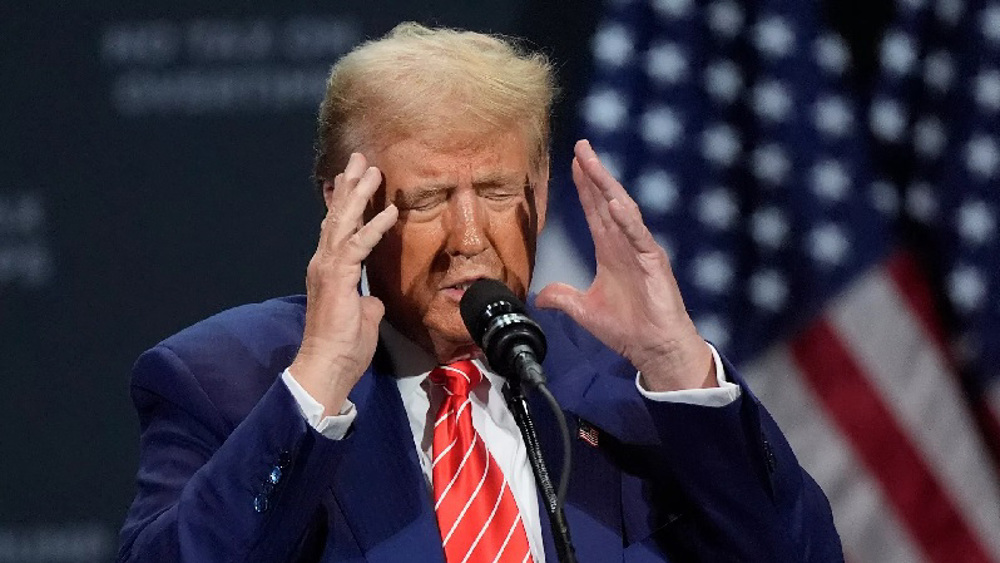Trump invokes wartime powers over corona as virus reaches Congress
US President Donald Trump has signed into law an emergency relief package, while announcing new military-related measures in what he called "war" against the coronavirus pandemic.
Trump on Wednesday signed a $100-billion package that ensures sick leave to workers with family members affected by the coronavirus, COVID-19.
Those whose children's schools have closed would also still receive up to two-thirds of their pay. The original measure called for workers to receive their full pay, though.
The president took the step as he was facing scrutiny for moving too slowly and timidly to fight the respiratory illness.
The pneumonia-like outbreak has so far infected 9,300 people and killed 150 patients in the US, according to a Johns Hopkins University tally.
Trump invokes wartime powers
Speaking at a news briefing hours after signing the aid package, Trump described himself "in a sense, a wartime president," whose administration is poised to fight "our war" against the novel coronavirus.
The US president announced that he was signing the Defense Production Act, which dates to the Korean War, “right after I'm finished with this conference.”
That would enable the president to direct civilian businesses to help meet orders for products necessary for the national defense.

"In other words — I think you will know what it is — and it can do a lot of good things if we need it, and we will have it all completed.”
Under the military act, Trump will also deploy two Navy hospital ships, one of which would go to New York, the state with the most cases of the infections.
That would enable the president to direct private industries to churn out protective masks and gowns for hospital workers, as well as ventilators needed to keep critically ill patients alive.
“There’s never been an instance like this where no matter what you have, it’s not enough,” he said. “We must sacrifice together because we’re all in this together.”
The president, however, said he will use the powers only if necessary.
The measures are taken as healthcare officials have repeatedly warned that stockpiles of medical equipment could be wiped out as COVID-19 infections keeps rising.
Coronavirus reaches Congress
In a related development, two members of the congress tested positive for the virus.
Rep. Mario Diaz-Balart, a Florida Republican, and Rep. Ben McAdams, a freshman Democrat from Utah became the first known members of Congress to have been infected.

The news has begun rippling across the legislature, with several representatives saying that they would self-quarantine because they had contact with the two infected lawmakers.
That has sparked an internal House debate about whether to permit remote voting for the US lawmakers.
Speaker Nancy Pelosi and other Democrats, however, have resisted the idea, arguing that it would set a damaging precedent for the future and signal a lack of confidence from government in the country’s fight against the outbreak.
VIDEO | Iran eases the rules for exporting hand-woven carpets
VIDEO | Intl. Day for the Elimination of Violence against Women: A stark reminder of Gaza women
Australia denies ex-Israeli minister Shaked visa
VIDEO | 85% of Yemeni displaced people face daily hunger crisis
US House passes bill targeting charities and pro-Palestine groups
VIDEO | Supporting Gaza genocide
Hezbollah attacks Israeli forces after Lebanese homes blown up
World leaders, states hail ICC arrest warrants for Netanyahu, Gallant










 This makes it easy to access the Press TV website
This makes it easy to access the Press TV website